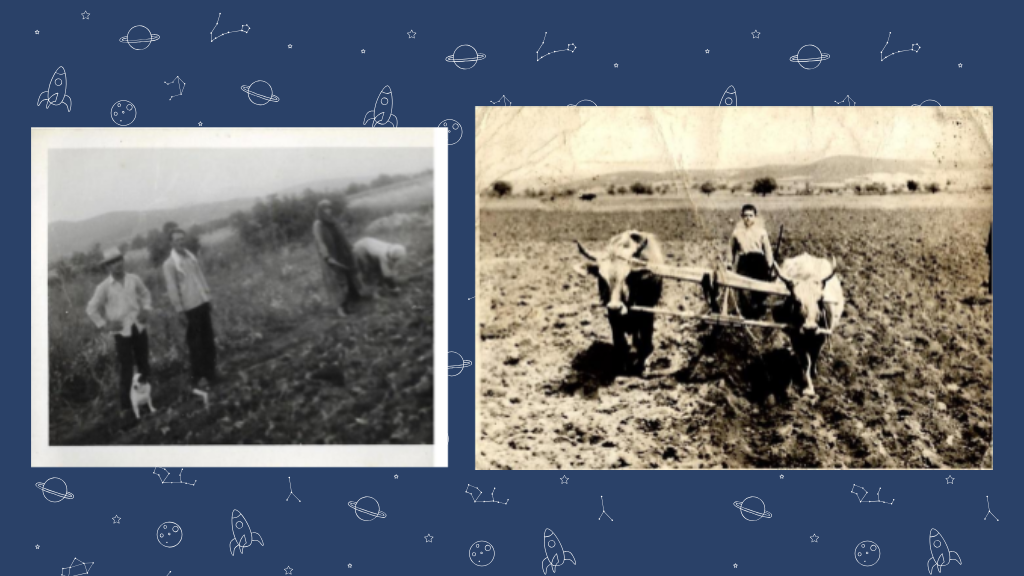Minority School of Dokos is one of the Greek schools participating in the second NEMESIS piloting period. Dokos is a small village located in Rodopi in Northern Greece, with the largest percentage of its inhabitants (around 1030 in total) being rural families working on the production of tobacco and cotton seedlings. Given the general socio-economic situation of the village, 3rd and 4th grade students wanted to  examine and learn more on the cultivation and production of goods, starting from the early years until today, in order to think about how these could be formed in the future.
examine and learn more on the cultivation and production of goods, starting from the early years until today, in order to think about how these could be formed in the future.
During this endeavour, the ultimate goal of their teacher, Mrs. Vasiliki Psaridou, was, on the one hand, to teach the Greek language to her students and on the other hand, to teach them possible alternative ways of connecting agricultural work using ICT in order to open their perspectives and see things with a different eye. Therefore, in close collaboration with both students and their parents, she felt the need to incorporate a more «playful» and interactive way to achieve this.

They began their quest by reading the European Union’s publication «Three Generations of Farmers» and leading students on a journey of knowledge covering the stories of three generations of farmers and the experiences they have gained over the past 50 years. This activity helped them better understand the difficult path that families have followed, the risks they were forced to take but also the support and incentives provided by the EU.
Parents of students have been a very important part of this endeavour. They have searched for photographic material and found photos of farmers in the village during the 60s and the 70s, which they shared with the teacher. Students were thus given the opportunity to see how villagers had cultivated their crops, the tools they used in the old days, as well as discuss further the evolvement of crops throughout the years.
On top of that, one of the student’s grandfather also wanted to add his own touch by making a miniature of a plow like the one he was using when he was a young farmer.



They then started looking into the present trying to understand the role but also the importance of farmers and agriculture for the future of the rural community as well as the opportunities that exist and could be exploited. They started by planting organic plants, seeing how they will grow after carefully taking care of them on a daily basis.




The closure of schools, however, did not stop them from doing things for their project. During distance learning courses, their teacher prepared an ebook giving them instructions on how, together with their parents and the local shops that have provided them with all the necessary materials, to take advantage of their free time and to build a rocket from recyclable materials. Students did not lose touch with their project and managed to adapt their idea using recyclable materials instead of robotic tools.
According to Mrs. Vasiliki, NEMESIS gave her students the opportunity to look and study different things, to understand what suits them best and how far they could go to achieve it. Through their work with the project «Cultivating on Mars», the 13 children of the 3rd and 4th grade managed to combine, to the extent that the conditions allowed them until the closing of schools, in an alternative way computer science and robotics, which as subjects are not taught in the Minority School.
More from this school remains to be seen from September 2020 onwards.


